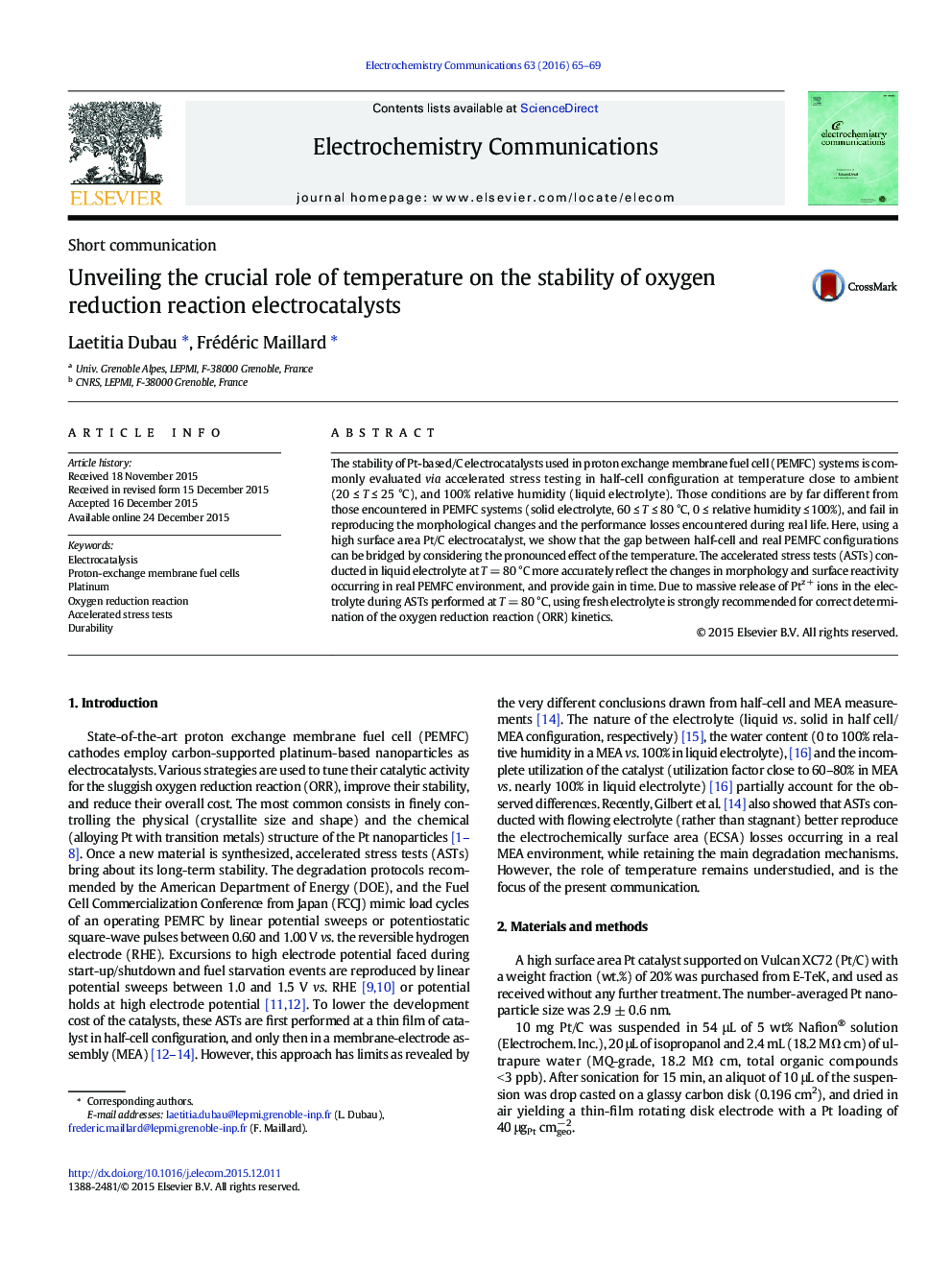| کد مقاله | کد نشریه | سال انتشار | مقاله انگلیسی | نسخه تمام متن |
|---|---|---|---|---|
| 178705 | 459314 | 2016 | 5 صفحه PDF | دانلود رایگان |
• Accelerated stress tests (ASTs) for proton-exchange membrane fuel cell (PEMFC) materials.
• Gap between ASTs performed in liquid and solid electrolyte.
• ASTs performed in liquid electrolyte at T = 80 °C better mimic a PEMFC environment.
• The temperature governs the degradation of Pt/C electrocatalysts.
The stability of Pt-based/C electrocatalysts used in proton exchange membrane fuel cell (PEMFC) systems is commonly evaluated via accelerated stress testing in half-cell configuration at temperature close to ambient (20 ≤ T ≤ 25 °C), and 100% relative humidity (liquid electrolyte). Those conditions are by far different from those encountered in PEMFC systems (solid electrolyte, 60 ≤ T ≤ 80 °C, 0 ≤ relative humidity ≤ 100%), and fail in reproducing the morphological changes and the performance losses encountered during real life. Here, using a high surface area Pt/C electrocatalyst, we show that the gap between half-cell and real PEMFC configurations can be bridged by considering the pronounced effect of the temperature. The accelerated stress tests (ASTs) conducted in liquid electrolyte at T = 80 °C more accurately reflect the changes in morphology and surface reactivity occurring in real PEMFC environment, and provide gain in time. Due to massive release of Ptz + ions in the electrolyte during ASTs performed at T = 80 °C, using fresh electrolyte is strongly recommended for correct determination of the oxygen reduction reaction (ORR) kinetics.
Figure optionsDownload as PowerPoint slide
Journal: Electrochemistry Communications - Volume 63, February 2016, Pages 65–69
